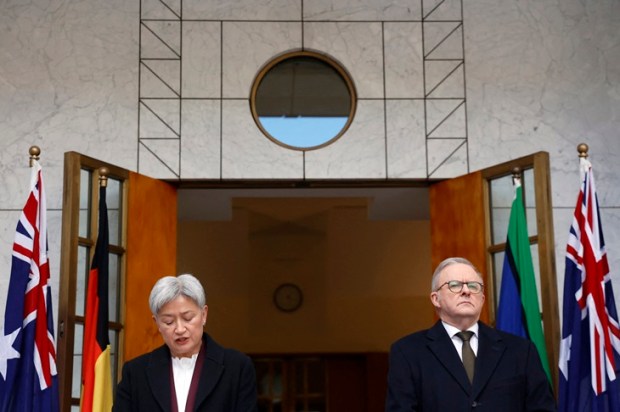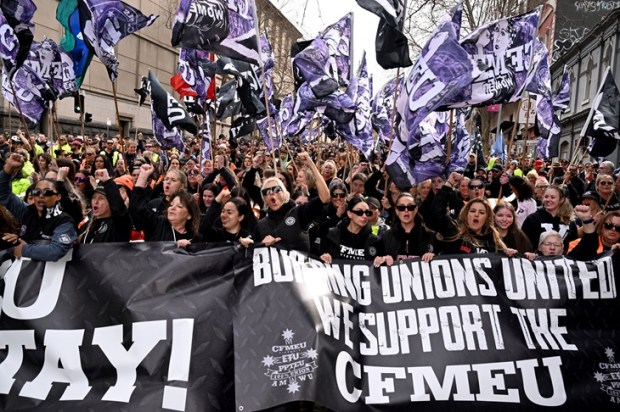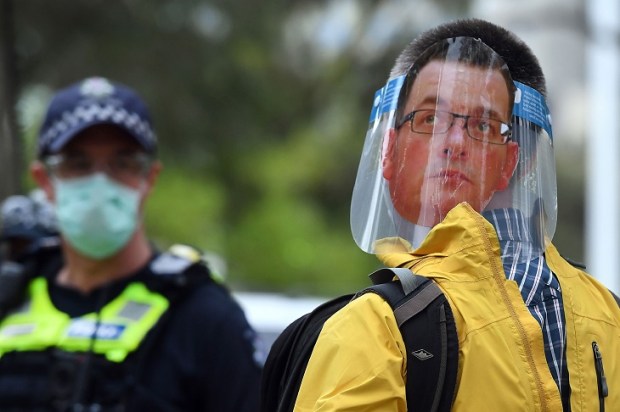Reflecting on the demise of the Ancien Régime in France in 1790, the great English Parliamentarian Edmund Burke warned his contemporaries a nation’s constitution is a partnership not only between those who are living, but between those who are living, those who are dead, and those who are to be born. It is a pact that persists through time and should not be altered to suit the abstractions and fashions of a single generation. Although change is necessary, it must be gradual, evolutionary, and fixed on the objective of promoting the public good.
Having lived through two years of upheaval to normal life, restriction of personal rights and liberties, freedom of movement, and effective criminalisation of dissent purportedly in the interests of public health, there is undoubtedly work to be done on the Australian Constitution to promote the public good. However, the first order of business for 2023 of the elected representatives to the 47th Australian Parliament is not constitutional reform to promote liberty and freedom, but a referendum to create a ‘Voice to Parliament’.
While this radical idea may suit the fashions of those living today, it is a gesture to the past, ignoring the reality of the diverse modern Australian populace. If we are to have constitutional reform, I suggest there are other pressing issues that should be also debated to ensure the Australian Constitution is fit for purpose today and promotes the good of those that will join us tomorrow. A very different Australia to the one that existed when the nation was formed on January 1, 1901.
In 2017, the Australian High Court in all its wisdom, decided section 44(i) of the Constitution, unhinged from its historical context, meant seven Australian Parliamentarians were ruled ineligible to sit in Parliament, notwithstanding their respective electorates having voted for them. The forlorn seven could not rightfully take their place in the Parliament having unknowingly acquired or inherited citizenship of a foreign power, including such notable foreign nations as the United Kingdom and New Zealand.
The Report of the Parliamentary Joint Standing Committee on Electoral Matters that followed the High Court decision in Re Canavan noted that over half of all Australians at that time would have the same barriers to nomination under s. 44 of the Constitution. It cited Australian Bureau of Statistics data that 46 per cent of the Australian population were born overseas or had one or more parents born overseas. The proportion is currently 51.5 per cent.
The Joint Standing Committee recommended section 44 be repealed or the words, ‘Until the Parliament otherwise provides’ added, concluding:
‘s. 44 acts as a deterrent for many Australians who are considering actively participating in politics. To fully represent the diversity of those they represent in the Federal Parliament, Australians of all backgrounds must have an equal opportunity to nominate for election.’
No action has been taken to implement the recommendations. Without reform to section 44 of the Constitution, one might contemplate how the voices of the disenfranchised generation of new Australians will be heard?
Section 92 of the Constitution, intended to enable the free flow of trade, commerce, and intercourse of Australian citizens throughout the former Australian colonies, seemed to work reasonably efficiently for 120 years. In fact, modern communication and transport over the past 30 years accelerated the diaspora of families, sport, business, interstate, and international trade creating a vibrant, open, prosperous, and multi-cultural nation. However, the High Court, anxious not to permit too great an amount of freedom, believes the phrase ‘absolutely free’ should not be interpreted literally. It had an opportunity at the start of the pandemic in the case of Palmer v Western Australia [2021] (‘Palmer’) to reconsider this view in relation to the second limb of section 92 unrelated to protectionism, i.e., intercourse among the states.
The decision should have been a simple matter for the Court to acknowledge that the word free means exactly what the Concise Oxford English Dictionary defines as ‘not under the control or in the power of another’. I particularly like the subsense definition: ‘subject neither to foreign domination nor despotic government’. Maybe the authors of the Constitution had future Australian State Premiers in mind.
However, the High Court on November 6, 2020 permitted Western Australia to effectively quarantine itself from the remainder of the Australian Federation for two years. It is folly to permit the wholesale closure of state borders without weighing the consequential damage to every other aspect of Australian life, the complex and equally important relationships of family, commerce and communities built up over 120 years in modern Australian society. Proportionality be damned. Surely it is time to revisit the phrasing of section 92 to ensure interstate borders may never be closed off to Australian citizens separated under such circumstances ever again?
The third provision of the Constitution demanding attention is section 116, forbidding the Commonwealth from ‘making any law … prohibiting the free exercise of any religion’. Primarily designed to ensure the separation of church and state, it was never envisaged that Christian and other religious organisations would be excluded from the physical as well as the spiritual lives of Australians. In fact, it is inconceivable to contemplate Australian education, health, and welfare services without the unique contribution of religious and charitable organisations.
Unfortunately, no such constitutional prohibition against free exercise of religious freedom extends to the states. Witness the multiple instances of state anti-discrimination law weaponised by legal activists and sympathetic human rights commissions against the public expression of traditional Christian doctrine such as attitudes to marriage, abortion, and homosexuality, Tasmania being a particularly egregious example.
The previous Australian government’s solution was the Religious Discrimination Bill 2021, which was unceremoniously withdrawn when it became clear it was not supported by most of the Parliament. While debate on the Bill was predictably side-tracked with spurious accusations of systematic discrimination against gay and transgender students, the Bill is not mourned by advocates of religious freedom. The last thing Australia needs is a complex web of discriminatory legislation, ambiguous exemptions, and a de facto blasphemy law. The solution is to extend the prohibition of section 116 and remove the power of not only the Commonwealth, but the states and territories to legislate against religious observance and expression, not more flawed anti-discrimination laws.
I don’t carry a torch for or against the proposed Aboriginal ‘Voice to Parliament’. A nation’s constitution must be continually nourished and adapted to the changing nature and circumstances of society for the public good in the daily lives of citizens and that includes the descendants of the original inhabitants of the continent. As Burke noted: ‘A slate without the means of change is without the means of conservation. Without such means it might even risk the loss of that part of the constitution that is wished the most religiously to preserve.’ I only ask that our Parliamentarians consider the living and those that are yet to be born as well as the dead. It is an important matter of choice for Australia as to whether it wants to engage in changes designed to promote the common good for all Australians, living and yet to be born, or confine itself to an endless condemnation of our past.

























